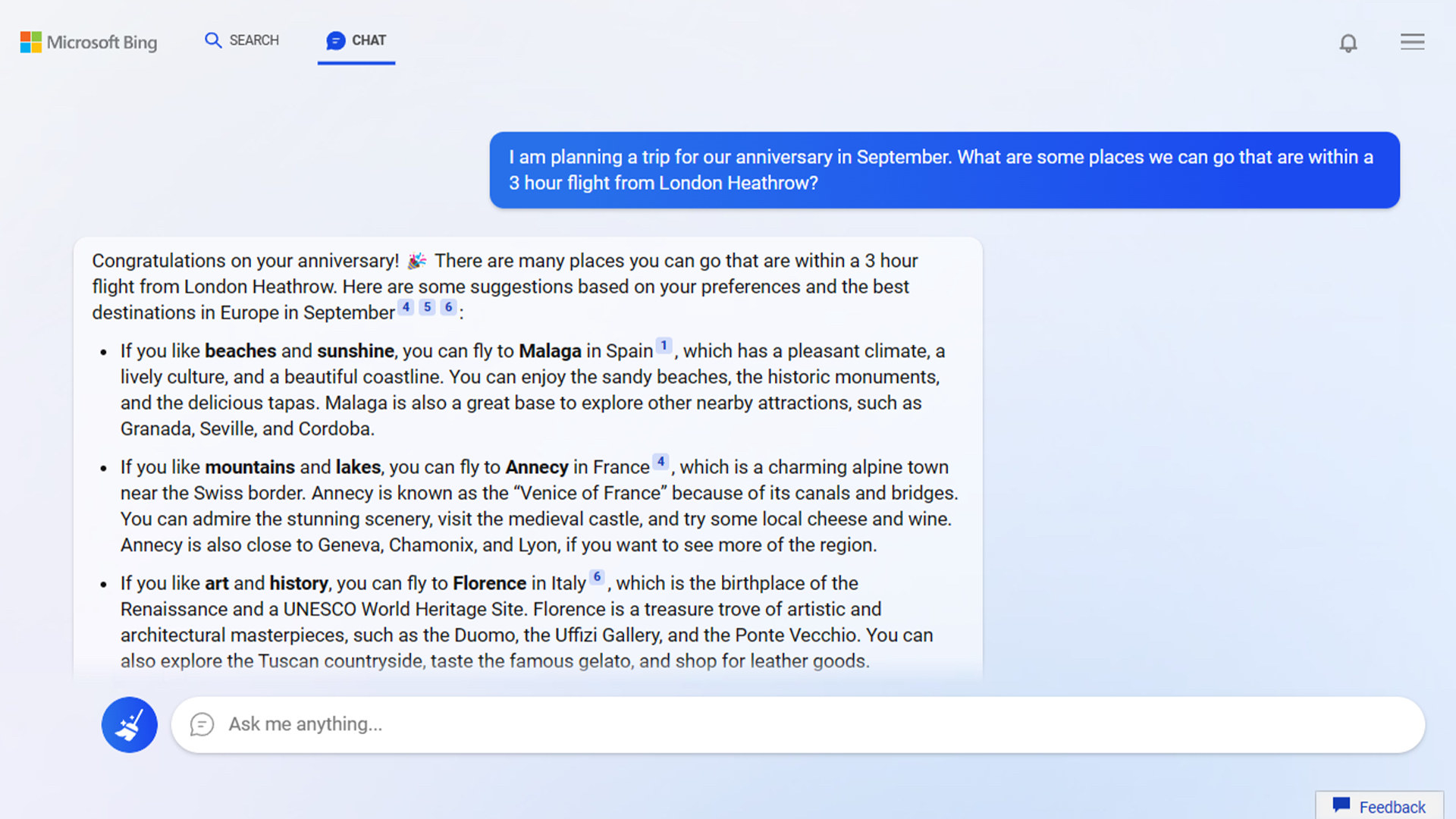At a press event held Tuesday in Redmond, Washington, Microsoft leaders unveiled a new AI-powered version of its search engine, Bing.
Microsoft has an ongoing partnership with OpenAI, the company that makes the much-hyped AI chat and writing tool ChatGPT. The new Bing, which will become available to the general public in the coming weeks, reportedly works on a more sophisticated version of GPT 3.5, the AI language that powers ChatGPT. The capabilities will roll out on Microsoft’s Edge browser first.
Here’s the first demo of how the new Bing works! Using AI you’ll be able to get a quick summary to your questions on the side with links to the resources.
"I think this technology is going to reshape pretty much every software category," Microsoft CEO Satya Nadella said, according to a Verge reporter in attendance. OpenAI CEO Sam Altman also appeared at the event.
Executive Yusuf Mehdi took reporters — alas, BuzzFeed News was not invited — through a demonstration of samples of search results with AI built in. The examples included:
- Showing the pros and cons of the top three vacuum cleaners (using information gleaned from review sites)
- Showing a list of the most influential Mexican artists (using information gleaned from various sites)
- Showing how applesauce could be used instead of eggs in baking (from various recipe sites)
- Answering a question about whether an Ikea couch can fit in a minivan, given general dimension information (with the caveat “However this is not a definitive answer”)
When you enter a question into new Bing that might get an AI response — it’s unclear which ones will — a list of relevant links still appears immediately below. On the right side of the page is an AI answer module that will write out a full answer for you. Also, users will be able to talk directly to the Bing chatbot.
One working example on the Bing site is "I am planning a trip for our anniversary in September. What are some places we can go that are within a 3 hour flight from London Heathrow?"

Another is "I need to throw a dinner party for 6 people who are vegetarian. Can you suggest a 3-course menu with a chocolate dessert?” The answer includes links to the individual recipes for each dish. But while you probably do need to click to look at the actual recipe, in a lot of other cases, a hypothetical user probably won’t bother clicking through to the links at all; they’ll have gotten the information they needed already.
What this means for websites whose information is being sucked into the answer modules is not known. Take the question about the pros and cons of the top three vacuums. Sites like Consumer Reports and Wirecutter usually rely on search to bring them traffic, as well as affiliate links to provide revenue once a shopper reads their review and decides to buy.
But if Bing essentially cuts out the intermediary (the website), this could hurt its business. Of course, Google and Bing already do this to some degree — typing “how tall is Rihanna” into Google’s search field will give you an immediate answer (5’8”), eliminating the need to click through to a site.
Meanwhile, Google is scrambling to keep up in the AI wars. Its ChatGPT competitor called Bard will become available in the next few weeks.
